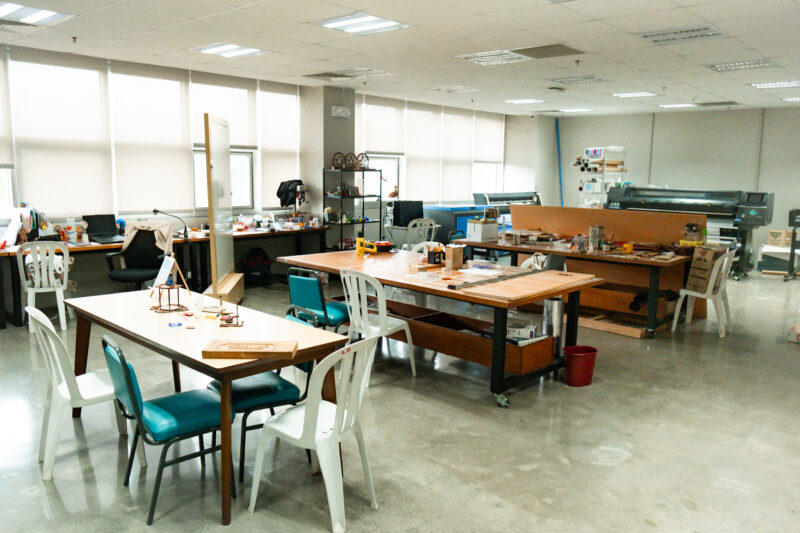IN A resolution authored by Speaker of the House of Representatives Feliciano Belmonte and Senator Ralph Recto, Congress is considering overturning the cap on foreign equity through a charter change or “cha-cha.”
Chairman of the Congressional Committee on Legislative Franchises Marcelino Teodoro said that the amendment seeks to “insert the phrase ‘unless otherwise provided by law’ in the sections pertaining to [industries] which are presently reserved for Filipinos or corporations and associations with 60% Filipino ownership.”
The “60-40 rule,” as it is called, is part of a set of nationalistic provisions codified in Section 12 of the 1987 Constitution. According to Dean of the Ateneo School of Social Sciences and economist Fernando Aldaba, PhD, the Constitution’s framers were influenced by concurrent events.
“At the time [the Constitution was being drafted], nationalist sentiment was high. [Our] experience with foreign intervention before 1987 was not as positive… so it’s understandable that the framers really put in place a lot of nationalistic provisions,” said Aldaba.
Equality of opportunity
Already, there have been concerns about the proposed amendment’s effect on Filipino small-to-medium enterprises (SMEs) in the country.
Executive Director of the Philippine Center for Entrepreneurship Ramon Lopez has expressed concerns over whether the burgeoning local entrepreneurial class will be able to compete effectively with potential foreign entrants.
“If there is an influx of foreign capital, even in areas dominated by SMEs, [foreign-owned businesses] will crowd out our SMEs,” said Lopez. “What will happen is that, yes, SMEs will [continue to] grow, but it will not be Filipino owned.”
Local government units (LGUs) also expressed concern over the effect on increased foreign participation in the economy. LGUs serve as the direct line of the government to SMEs.
Marikina Mayor Del de Guzman said that although there are many opportunities for Philippine businesses to thrive, Philippine industries throughout the country are facing increased pressure from cheaper goods from abroad. However, he admitted that foreign trade is necessary to provide affordable products for Filipinos.
“As much as we want to protect our businesses [through an] economic protectionist stance, [the government] has to weigh in whether those products can be supplied by Filipinos,” he says.
Long-term pay-offs
Despite concerns for SMEs, many economists including Aldaba believe that the policy will yield major economic pay-offs with regards to Foreign Direct Investment (FDI).
“Other nations are giving a lot of incentives to foreign investors to [enter their country]…and if we don’t seem to be at par with them in terms of incentives and openness, then we might lose out,” said Aldaba.
According to him, the role FDI plays is critical for a developing country like the Philippines, as economic savings are usually derived from investments. Savings act as a buffer against possible economic downturn and is vital in creating financial stability.
At present, the Philippines has a low savings rate compared to other countries in Southeast Asia. In the years 2010 to 2014, both Malaysia and Indonesia had gross domestic savings rates numbering in the 30-35% range, while the Philippines maintained a mere 17.4%.
Moreover, lawmakers such as Teodoro also believe the resolution will open up more opportunities for local entrepreneurs.
“If more capital and funding [from foreign investors] are made available to local entrepreneurs… then more businesses might actually be put up resulting to better and more employment chances for all,” Teodoro said. “Once these opportunities are realized, then it can only result to better finances not only for businessmen, but to the working class as well.”
A middle ground
In the event that competition arises between local SMEs and foreign entrants, Aldaba believes that this can be beneficial for Filipinos.
“In economics, competition is good–sometimes, local producers, if they’re protected from competition outside, they become complacent, so they give you bad products,” said Aldaba.
In spite of this, entrepreneurship advocates such as Lopez are confident in the entrepreneurial ability of Filipinos to cope with the challenges presented to them. He says that civil society groups have helped develop local entrepreneurship.
“There are organizations, like GoNegosyo, which… have encouraged an entrepreneurial mindset, an entrepreneurial revolution… I can say that there is an increasing awareness and knowhow on entrepreneurship in the country,” Lopez said.
However, for De Guzman, local businesses should continue to be supported and patronized.
“Let’s buy Filipino dahil tayo rin ang mawawalan pag hindi nabili yung gawa natin (Let’s buy Filipino because it will be our loss if no one buys our products),” he said.
As of this writing, Congress has adjourned and the resolution has been put on hold. Belmonte hopes to put the resolution to a vote when Congress resumes its Second Regular Session on July 27.




